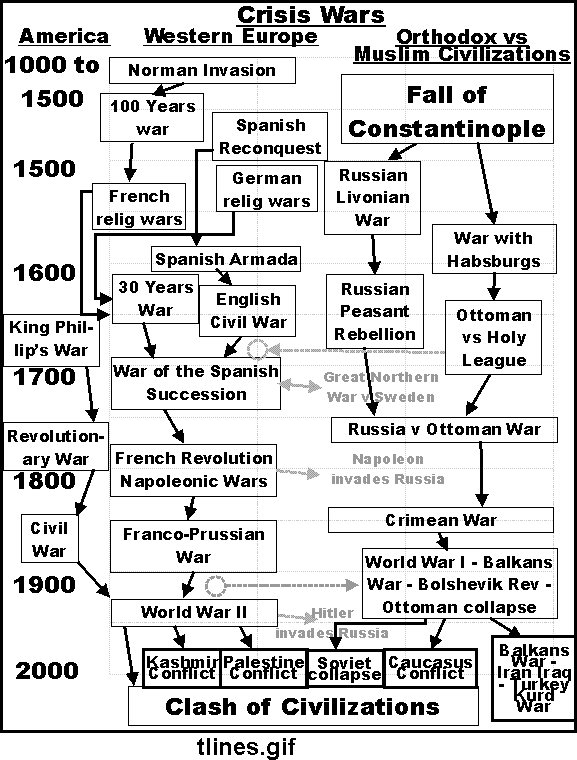



|
Generational Dynamics
 |
View from the international space station |
|
 |
Earth
|
It's a basic principle of Generational Dynamics that even in a
dictatorship, major policies are determined by masses of people,
entire generations of people, following predictable behavior patterns,
and not by politicians. Politicians' attitudes and behaviors are
irrelevant, except as they reflect the views of the people.
|




|
Crisis versus Non-Crisis wars
 |
Non-crisis wars are 'rational' |
|
- |
Launched by politicians, people follow |
|
- |
Usually have clear, 'logical' objectives |
|
- |
Try to follow the 'rules of war' |
|
- |
Often intermittent, no clear conclusion |
|
- |
Example: Korean, Vietnam, Iraq wars |
 |
Crisis wars are 'irrational' |
|
- |
Launched by the people, politicians follow |
|
- |
Caused by xenophobia and generational panic |
|
- |
Genocidal, often wars of extermination |
|
- |
Gather momentum until the explosive climax |
|
- |
Example: Revolutionary War, Civil War, WW II |
|
- |
Crisis civil wars are the worst |
 |
Aftermath |
|
- |
Non-crisis: Problems remain unresolved |
|
- |
Crisis: Survivors vow to spend their lives making |
|
- |
... sure that nothing like that ever happens again |
|








